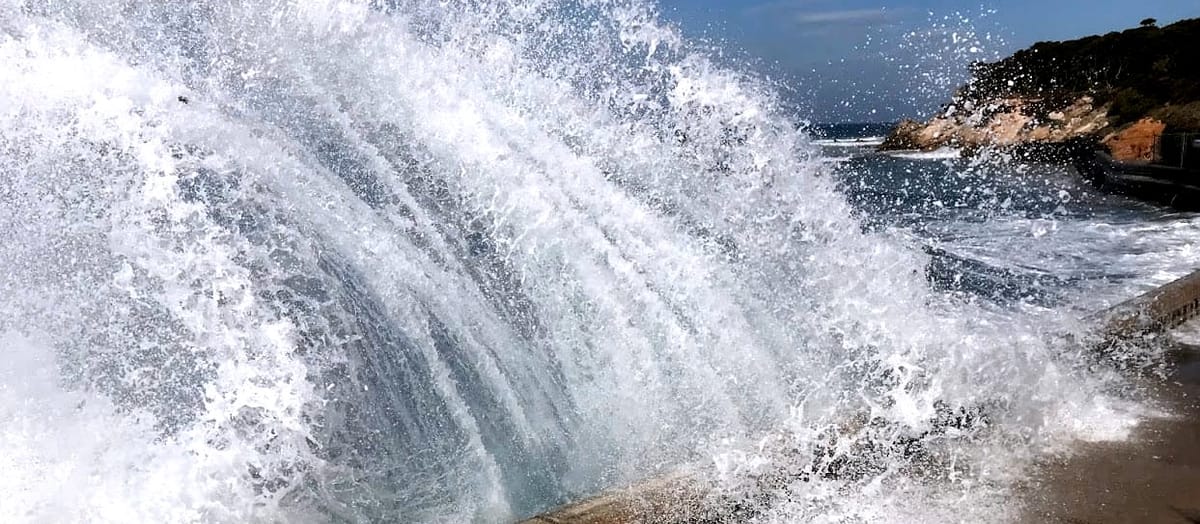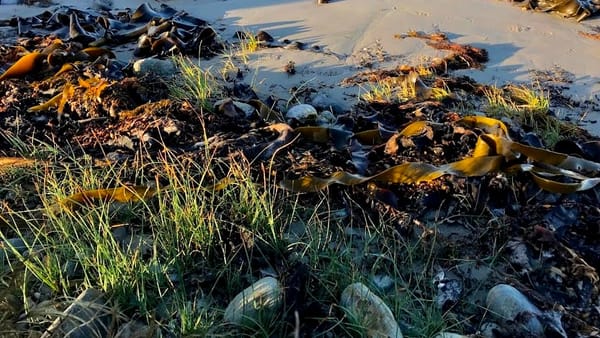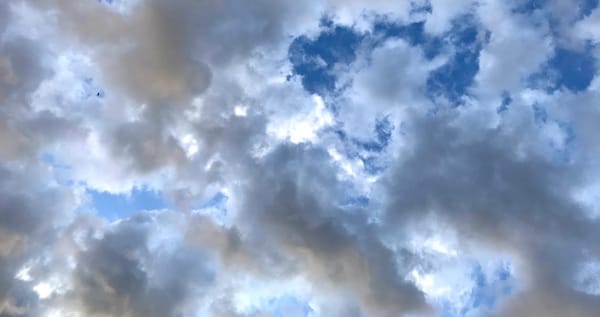The dilemmas of activism: who is transforming whom?

“Nature, too, awaits the revolution” declared Herbert Marcuse fifty years ago. She has given up waiting and events are now overtaking us. The Gaian revolution is underway and it will prompt those of us living in the eye the late-modernity cyclone to ask each other: what is important?
Human politics are an expression of the Earth’s biodiversity and the political upheaval being observed everywhere now is an expression of the physical extremes being observed worldwide in the atmosphere, the oceans and the ecosystems of the planet.
This proposition has liberating potential, releasing us from the paralysing dilemmas of activism during the onset of the sixth extinction.
There hasn't been a month of below average global temperatures since 1985. Global average temperature rise is a marker of radical, fundamental, systemic transformation that has been underway for decades. We are part of the fabric of the Earth’s biosphere, so our societies are subject to and manifestations of these same processes of upheaval. It has been happening for most of our lives and has recently become marked enough for most people to notice it.
Many people are talking about political extremism, global upheaval and unpredictability in human affairs and not making this connection. Their confusion expresses the underlying driver of climate change – the deep-buried and illusory separation of "society" from "nature" that in the last few hundred years has overtaken my culture and, thanks to concurrent aggressive colonial expansion, most of the world.
Another proposition follows: the task of activism is not foisting transformative change on an unwilling and static society, but the cultivation of qualities and values within a complex systemic transformation the scope of which is beyond our conception. Think of microclimates. The trees you plant don’t create the precipitation cycle, but they participate in it and locate it.
Transformative change is possible, and it is characterised by the quality and direction of change
These words are drawn from an assessment report for a work program on transformative change underway at the Intergovernmental Panel on Biodiversity and Ecosystem Services.
The IPBES began this work stream after concluding that reversing biodiversity decline in a short period of time cannot be done without “fundamental, system-wide shifts in views, structures and practices.” Given the above proposition, that transformative change is already underway, we are invited to consider, not how to make change, but what qualities we cultivate as events swirl around us. What are we planting and nurturing that will irrigate and shelter those who come after us, guard them from erosion and enrich their soil?
The IPBES reviewed research on the principles, strategies and barriers to transformational change. It presents a case for multi-scale transformation at the personal, social, industrial and institutional scale. Three key underlying causes of natural collapse were identified: Disconnection from and domination over nature and people; concentration of power and wealth; prioritisation of short-term, individual and material gains.
The converse qualities then, are those to cultivate: connection and vulnerability to nature and people, distribution of power and wealth and prioritisation of enduring, social and spiritual growth.
A further proposition emerges from all of this: we should not approach climate change or the biodiversity crisis with campaigns that impose “solutions” on unwilling beings, but by a process of personal and collective enactment of the qualities above in all our interactions, decisions and styles.
To quote IPBES again: Transformative change takes place over time and seemingly small changes that address the underlying causes can spread in ways that inspire or influence larger and more systemic shifts, especially when they overcome barriers and challenges
The basics of activism and advocacy alter markedly if we accept that transformative change is already underway and cannot be halted. They alter markedly if we act in multi-generational timescales. We will not know rest, peace and stability, but life has been briefly granted to us in a period when we have capacity to influence the quality of change and its direction. This is an extraordinary gift, but it comes, as fairytale gifts always do, with a catch: your actions have consequences, but you cannot know what they are.
Your actions have consequences, but you cannot know what they are.
Final proposition: By accepting our place in nature we shed the false structures of progress and discover the regenerative possibilities of being unstrategic. If you do not know what effect your actions will cause, then attention becomes hyper-focused on the quality of the action itself, its immediate context, every other entity it involves. What we do is much less important than how we do it. Let qualities guide, rather than goals. In all doings, be caring, connected, vulnerable, and beautiful, distribute power and wealth, act reciprocally and with consent.
The dilemma of activism (why act, when all seems futile?) can thereby be put aside. There never were any ends: all things that are, are means. The answer to “why act” is the same as “why eat? why love? why paint or write?” Because this is your life, our lives, and they are part of an irreducible teeming world that is beautiful beyond measure.



